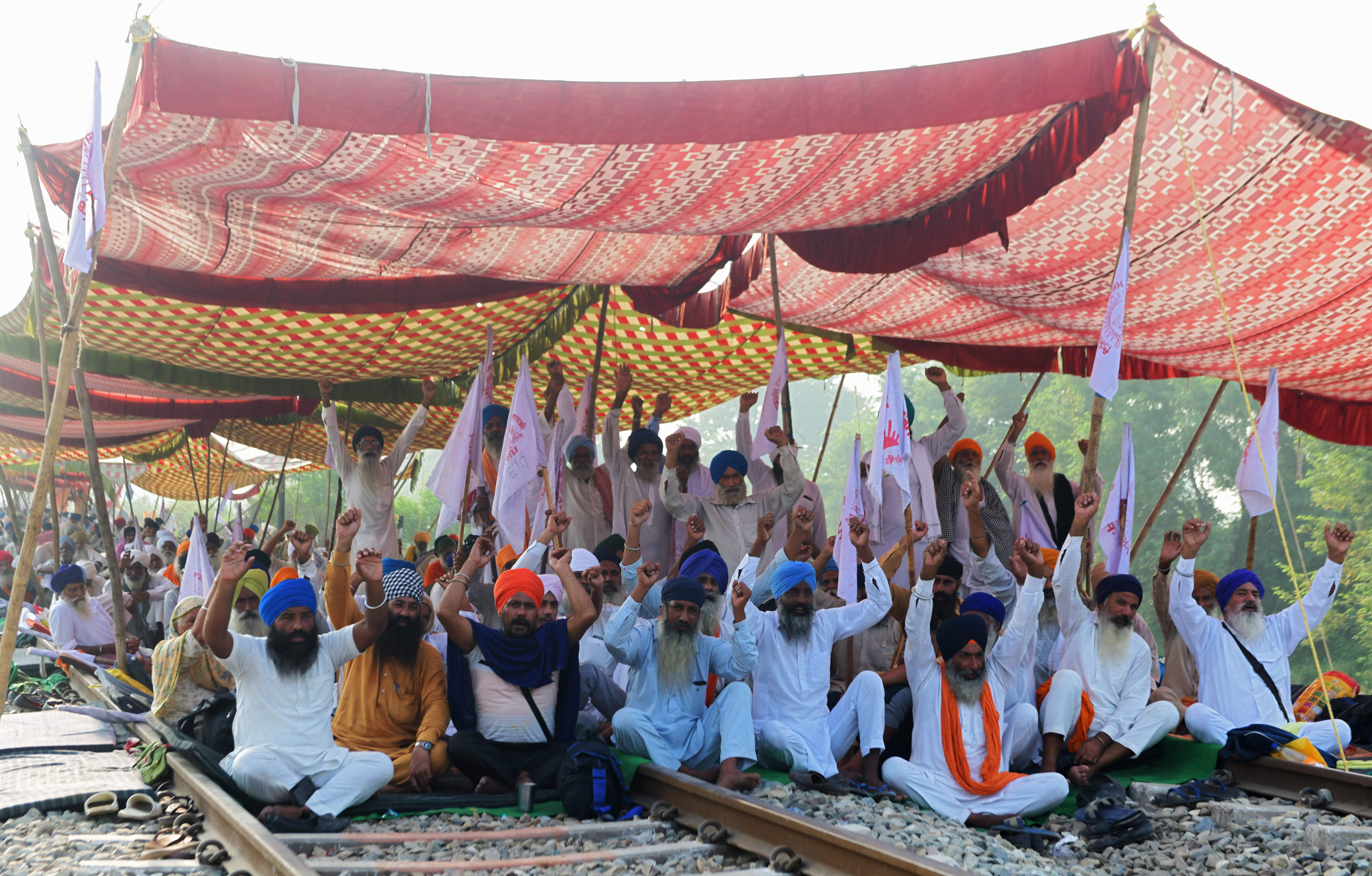
Farmers shout slogans and block train tracks during a nationwide farmers’ strike following the recent passing of agriculture bills in the Lok Sabha (lower house), at Devi Dasspura village some 25 kms from Amritsar on September 25, 2020. (Photo by NARINDER NANU / AFP)
NEW DELHI — Angry farmers took to the streets and blocked roads and railways across India on Friday, intensifying protests over major new farming legislation they say will benefit only big corporates.
The plight of farmers is a major political issue in India, with some 70 percent of rural households depending primarily on agriculture, and thousands of farmers killing themselves in recent years because of debt and drought.
The legislation passed by parliament in chaotic scenes on Sunday means that farmers no longer have to sell to state-controlled markets at fixed prices, freeing them to supply to any buyer they choose and getting rid of middlemen.
Prime Minister Narendra Modi said the legislation would achieve a “complete transformation of the agriculture sector” and empower “tens of millions of farmers”, while encouraging much-needed investment and modernization.
But critics say the changes will leave farmers at the mercy of large corporations by taking away their bargaining power.
On Friday, hundreds of farmers from the northern states of Punjab and Haryana — the biggest producers of wheat and rice — blocked highways and railway tracks, shouting anti-government slogans.
Images showed protesters with yellow and green flags sitting on the roadside with placards in Punjab state, where many shops and business establishments were shut.
In the southern state of Karnataka, farmers stopped the entry of vehicles on the borders of IT hub Bangalore.
Over 100 farmer unions were taking part, although coronavirus fears were keeping some people away, Bhupinder Singh Mann, president of the All India Kisan Coordination Committee told AFP.
“The government is trying to exploit the farmers, they don’t care about us,” Mann said.
Eight opposition lawmakers were suspended for a week on Sunday after ugly scenes in the legislature of the world’s largest democracy with microphones vandalized and objects thrown.
The opposition says that Modi’s government took advantage of coronavirus reducing parliamentary debating time, and push through the three farming bills and other contentious legislation without proper scrutiny.
These included a root-and-branch reform of India’s labor codes and an increase of oversight on foreign donations to civil society organizations including rights groups.
“This hasty lawmaking that clearly undermines human rights and the work of civil society is yet another attempt by the government to destabilize the functioning of democratic institutions in India,” said Ian Seiderman from the International Commission of Jurists (ICJ).